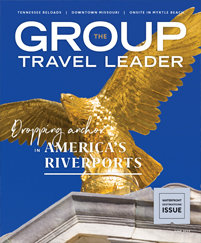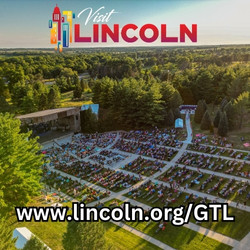Garland Rogers
Prestonsburg, Kentucky
Music ran in Garland Rogers’ family; his grandfather played banjo and his grandmother played guitar and sang. So when he first stepped onto the stage at a high school talent show in his hometown of Prestonsburg, Kentucky, in 1990, he was a natural.
“It was the first time I sang in front of anybody,” Rogers said. “There was a lady who came to the talent show who was putting together the Kentucky Opry, and she asked me to become a member of the Opry Junior Pro, a group of young local talent who can work their way into the big opry.”
Rogers graduated from junior player to full cast member of the Kentucky Opry, a music show at the Mountain Arts Center near Prestonsburg. He spent 14 years with the opry before leaving to pursue other interests, making a record in Nashville and touring with a friend for five years. He also began a bluegrass gospel band that played at his church and other places. Then he got a call from the director of the Mountain Arts Center.
“Clayton Case called me and asked if I would be interested in coming back to the Mountain Arts Center and the Kentucky Opry, and that got me back into country music.”
Today Rogers is one of the lead singers of the Opry, which highlights classical Kentucky mountain music as well as country, gospel and other music and comedy. Groups can enjoy the family-friendly show regularly at the Mountain Arts Center or find other local talent playing traditional and country music at restaurants throughout eastern Kentucky.
“Somebody is playing somewhere about every night,” Rogers said.
Charlie Worsham
Nashville, Tennessee
From childhood, Charlie Worsham knew he wanted to be a musician. And it only made sense that he would play country music.
“Nine of the first 10 concerts I went to were country concerts,” he said. “Vince Gill, Marty Stuart, Patty Loveless. And a lot of my early days in music were in the world of bluegrass, which is part of the lineage of country music. So it always suited me, and I loved it.”
After attending Berklee College of Music, the Mississippi native did what so many other young musicians do: moved to Nashville to chase a dream. He joined a band, wrote songs and played in the recording studio. Eventually, he got a solo record deal with Warner Brothers, where he has released two albums, and began touring with the likes of Kenny Rogers and Taylor Swift.
“On a regular basis, I ask myself what my 12-year-old self would think about what I have done over the past week. The me from that time would be losing his mind. It’s a pretty wonderful opportunity day in and day out. It’s a challenging business, but I love what I do, and I’m grateful for it.”
Worsham revels in Nashville’s music heritage. He has a long list of recommendations for visitors who want to immerse themselves in Music City.
“If you’re coming to Nashville, you have to go to the Ryman Auditorium — they don’t call it the mother church for nothing,” he said. “Then there’s a tiny place called the Station Inn, which has been a bluegrass club for 40 years. It is to bluegrass what the Ryman is to country.
“You also have to go to the Country Music Hall of Fame. In my opinion, it’s about the best museum for music that ever was. It tells the story of country music in a very compelling way. And they have really cool things you can attend, like songwriter workshops or an instrument petting zoo.”
Tricia Walker
Cleveland, Mississippi
Music took Tricia Walker from Mississippi to the world’s biggest stages — and then back again.
“I grew up in a small town in southwest Mississippi called Fayette,” she said. “After I saw the Beatles on ‘Ed Sullivan,’ I wanted to learn to play guitar, and I played until my fingers bled. I started a high school band, playing everything from Jimi Hendrix to the Monkees. After I finished my master’s degree in music, I started writing songs.”
Walker entered some songs in a local competition and won, which encouraged her to take the plunge and move 500 miles to Nashville. She found success as a performer, backing up artists such as Connie Smith and Shania Twain; as a songwriter; performing songwriter shows in the round with Ashley Cleveland, Pam Tillis and Karen Staley.
After Hurricane Katrina devastated parts of Mississippi in 2004, her alma mater, Delta State University, began a music recording program and reached out to her about coming to work with talented young students. So now, Walker leverages her experience as director of the Delta Music Institute helping up-and-coming Mississippi musicians hone their craft.
“Blues is very important to the history of the Delta,” she said. “But here in the college program, I see students doing all kinds of things. I hear a lot of alt rock, a lot of hip-hop, a lot of experimental music. Our students come from different towns, mash up against each other and start doing things that are pretty unique. So I’m hopeful that what they will put out in the world is going to be new and fresh.”
Walker said groups visiting the Delta should get to know the breadth of its music scene by making stops in a variety of places. Cleveland has an indie rock scene, and Clarksdale, about 40 miles away, is an epicenter of traditional blues.
She also encourages groups to stop at the Gramm Museum Mississippi in Cleveland.
“There’s a Mississippi-centric portion that has a fantastic apparatus called the Music Table,” she said. “It’s like you’re looking at a river, and there are digital photos and fields floating down the table. You can touch them, listen to the music and learn about the influences.”











